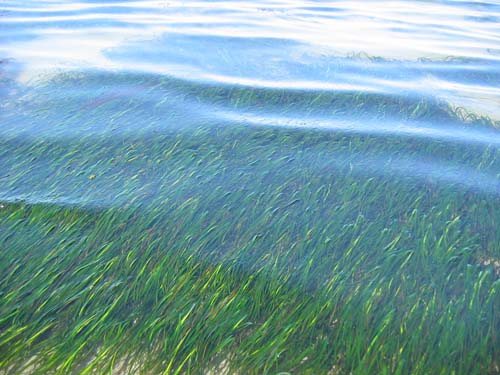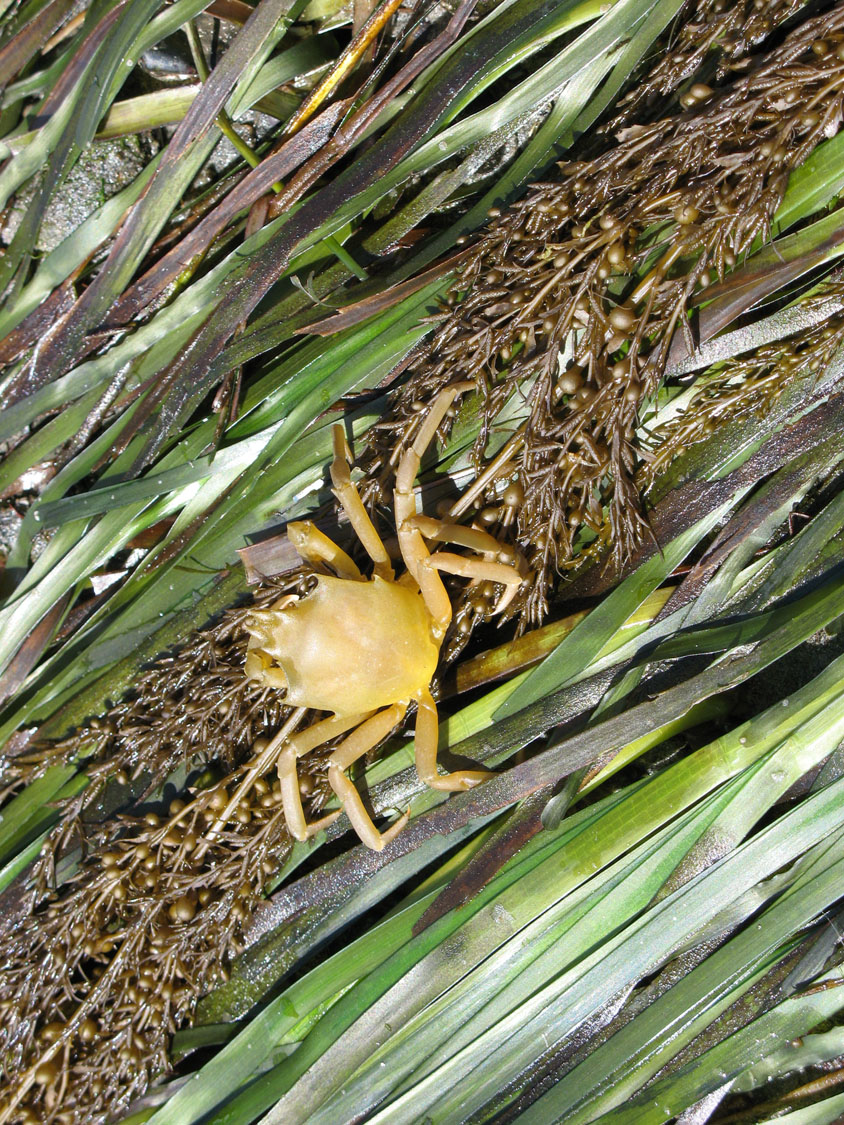Eelgrass Mapping
Youth Conduct Multi-year Eelgrass Research Project
The Grade Five classes at Arrowview Elementary School, in Qualicum Beach, have been conducting a multi-year research project for the last 3 years. They have been mapping and comparing the growth rates of the natural eelgrass, marina (say MAR-ih-nah), to the introduced japonica (say ja-PAH-nica).
Up until recently, it has been understood that the introduced eelgrass does not compete with the natural - that they take up very different locations on a beach. In the last 4years however, in some locations in B.C., we have found the species mixing. The question that researchers have is whether this mixing indicates a change in the japonica species that will permit competition with the marina. The other possibilities are that the marina is climbing the beach due to reduced water quality and it is looking for the sunshin e, or the sea level is rising.
e, or the sea level is rising.
The Arrowview school groups have been tracking the changes in density on two specific transects. This will indicate growth rates of each species and provide initial information about whether one is competing with the other.
This information will be shared with the BC Eelgrass Mapping Network established in 29 communities along the B.C. coast, through the Seagrass Conservation Working Group.
Middle school students aid in inventory project – a win-win for all
Grade Six students at Qualicum Middle School were delighted to get a look at their local eelgrass beds, and help map their location and density, contributing to a mapping and monitoring project on-going in the Parksville-Qualicum Beach Wildlife Management Area.
With help from the students, MVIHES was able to map eelgrass beds that are only visible on extremely low tides, providing some valuable insight to densities, and other species in the beds.
Despite growing up in a coastal community, many of the students had never seen sea stars, sand lance, sole, nudibranchs, and various types of seagrasses and kelps. Excited by what they saw, they walked away feeling good for helping out, but also with a new understanding of their community.
Many of the students after seeing the amount of life in an eelgrass bed, immediately pledged to alter their skim boarding behaviour and will now look for sections of beach that are eelgrass free.